
.
.

.
.
Sylvester McCoy was born James Kent-Smith on 20 August 1943, the son of
Molly Sheridan and Percy James Kent-Smith, an Irish couple living in Dunoon,
Scotland.
His father was killed in the Second World War a couple of months before he was born, and he was brought up by his mother, his grandmother - Mary Sheridan - and aunts.
He attended St. Mun's, a local Dunoon school. The headmistress, Rosie O'Grady, was keen that her young charges obtain decent jobs upon leaving the school and so organised regular talks from people in all manner of professions.
McCoy expressed an interest in every job, and as a result eventually found himself given an afternoon off school to go to see a local priest about entering the priesthood. He left school, joined Blair's College, a seminary in Aberdeen, and between the ages of twelve and sixteen trained to be a priest.
It was while at Blair's College that he realised that there was more to life than could be found in Dunoon and discovered classical music and history, which fascinated him.
He eventually decided to become a monk and applied to join a Dominican order, but his application was rejected as he was too young. He went instead to Dunoon grammar school, where he discovered the delights of his female fellow pupils and quickly decided that he didn't want to be a priest or a monk after all.
On finishing his education he took a holiday down to London, from which he never returned. McCoy approached a youth employment centre looking for a job and impressed by the fact that he had attended a grammar school, they instantly found him a job in the City working for an insurance company. He trained in this job and stayed there until he was twenty-seven before deciding that it wasn't really for him.
With the help of a cook at London's Roundhouse Theatre, McCoy gained a job there selling tickets and keeping the books in the box office.
Sylvester McCoy joined the Ken Campbell Roadshow. McCoy, along with Bob Hoskins, Jane Wood and Dave Hill would start performing a range of plays with the umbrella theme of 'modern myths.' McCoy found himself in a double-act with Hoskins. After Hoskins left, and being booked at a circus, director Ken Campbell improvised a circus-based act about a fictitious stuntman called Sylvester McCoy and thought it would be amusing if the programme stated that this character was played by 'Sylvester McCoy.'
While at the Royal Court Theatre, one of the critics missed the joke and assumed that Sylvester McCoy was a real person. McCoy like the irony of this, and adopted the name of his stage identiy. During one of their UK engagements, the Roadshow team was invited up by Joan Littlewood, who was directing a production of "The Hostage," before the performance of her play. This led McCoy to bona fide theatre, and he was subsequently invited to appear in numerous plays and musicals.
He was starring at the National Theatre in "The Pied Piper", a play written especially for him, that McCoy learned that the BBC was looking for a new lead actor to replace Colin Baker in "Doctor Who."
After "Doctor Who," McCoy worked extensively in theatre and on television. In theatre he appeared in "The Government Inspector" twice in tours during 1993 and 1994, and in between these he starred as the Narrator, Thomas Marvel, in the stage version of H.G. Wells's "The Invisible Man."
In 1995 he starred in "Zorro: The Musical." On television his credits include "Frank Stubbs Promotes" and "Rab C. Nesbitt." He also created the character of Crud in the cult television series "Ghoul-Lashed" for Sky TV.
In 1996 he was contracted to reprise movie, handing over to an eighth incarnation of the Time Lord in the earthly form of his friend Paul McGann. Also in 1996, McCoy devised and presented Reeltime Pictures' "I Was A Doctor Who Monster" - a special video tribute to the men and women who had played the monsters of "Doctor Who."
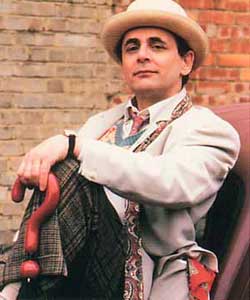
.
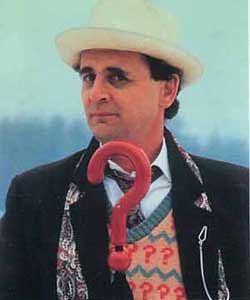
.
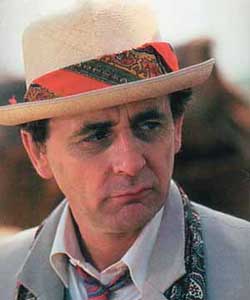
.
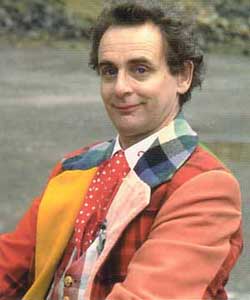
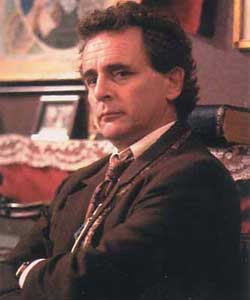
.